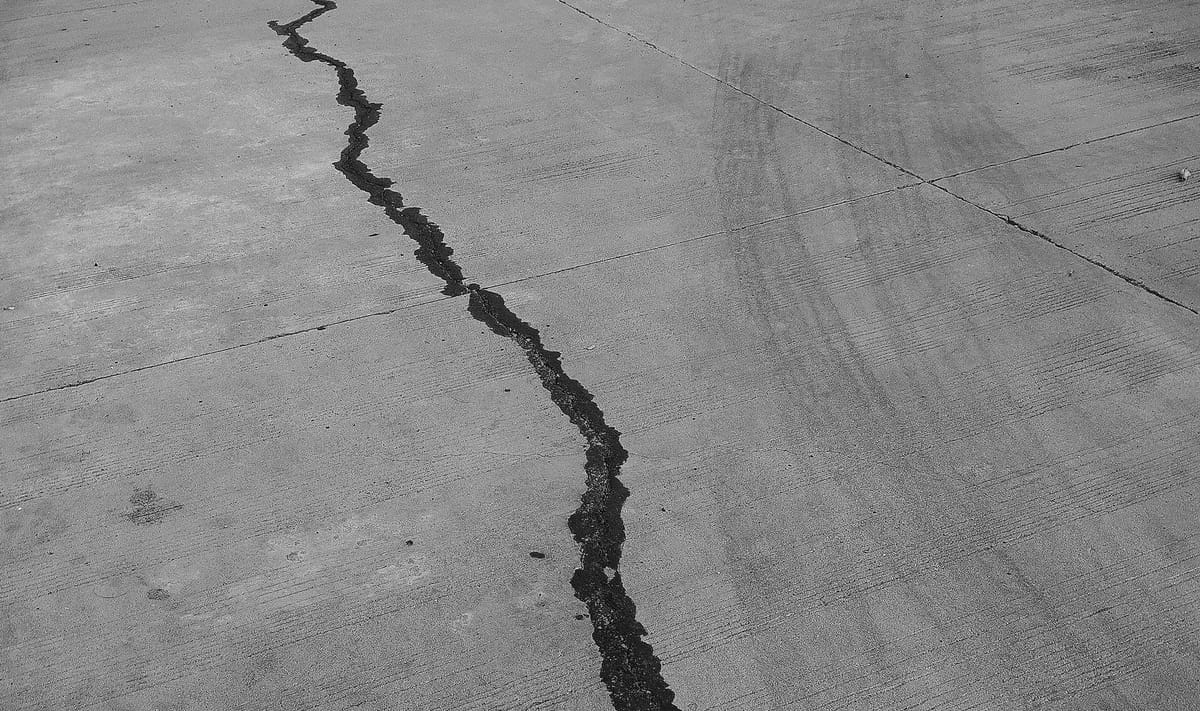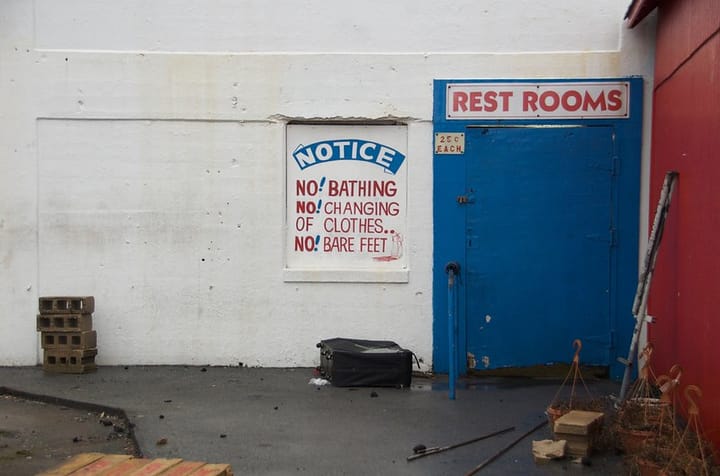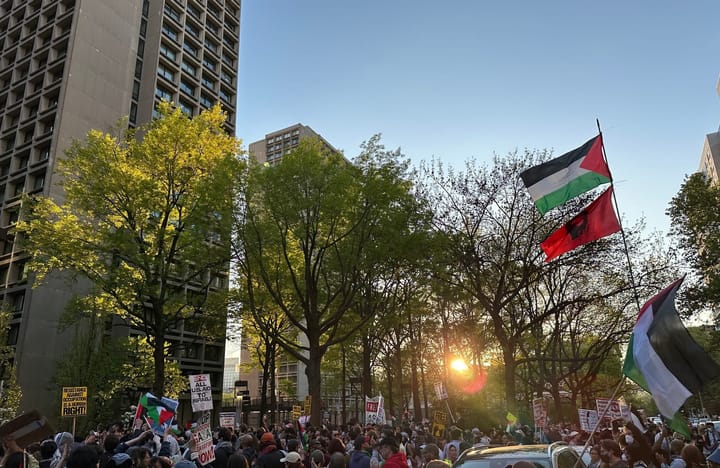You don’t want this smoke: a New Yorker’s guide to our new wildfire reality
The smoke will inevitably be back at some point — here's how to prepare, with or without Eric Adams' help.

As you’re probably well aware by now, last year’s horrible orange smoke day was no aberration; it was a preview of things to come. The climate crisis rages on, and as such, wildfire smoke — like earthquakes apparently! — is no longer the sole province of our compatriots on the West Coast.
To wit: dozens of wildfires are currently burning all across Canada, and last week the smoke drifted into the U.S. and caused “unhealthy” air quality levels in Wisconsin, Minnesota and Iowa. We’re still in the early days of this year’s wildfire season (which runs April through October), so odds are it’s only a matter of time until some of that smoke makes its way to New York again.
We’re not gonna sugarcoat it, there’s no silver bullet fix for this problem in the short term (though of course “meaningfully addressing the climate crisis” would do a whole hell of a lot). That said, those aforementioned West Coast people have been dealing with this problem longer than us and have developed some techniques for staying safe and breathing when the air feels like it’s on fire. Keep this info on hand for our next smoke day, and keep yourself and your people breathing (relatively) easy:
We’re always choking on exhaust from cars anyway, what even qualifies as actually “bad” air?
You’re correct that New York City’s air quality generally kind of sucks (though it used to be much worse), and even as I’m writing this on a clear, sunny Wednesday, my AccuWeather app clocks the current Air Quality Index (AQI) at 57, which is “poor,” reflects “a high level of pollution” and will be “unhealthy for sensitive groups.”
As a rule, any AQI under 100 should be fine for most people, according to the American Lung Association, and beyond that, the higher it climbs, the more hazardous it gets. On last year’s bad smoke day, we got up to 484. If the day’s air quality is higher than “code orange” (AQI 101 to 150), it’s recommended to avoid extended periods of activity outdoors, and particularly to avoid exercise outdoors.
So yes, AQI is a metric we should be keeping an eye on along with temperature, humidity, and the UV index. Here’s where to find it:
- Most weather apps including AccuWeather and Apple’s Weather app now include AQI along with the day’s other basic metrics. The EPA also has its own AirNow app for checking local forecasts and air quality.
- You can also do a quick check of the day’s AQI on New York State’s website or by plugging your zip code into airnow.gov (which will also show you a map of air quality in your larger geographical region).
- Get on the horn and call the New York State Air Quality Hotline at (800) 535-1345.
- Subscribe to personalized EnviroFlash! email alerts that will tell you if there’s any pressing air quality info to be aware of.
What to do when the poison fog rolls in
Like we said above, if the AQI climbs above 150, you’re not going to want to stay outside all day, and definitely not doing anything strenuous outside. And if it’s getting into seriously smoky territory like we saw last summer, it’s safest to stay inside as much as possible. Some basics to consider:
If you’re outside:
- Wear a particulate mask, AKA a respirator like the N95s many people still have hoarded from high COVID days. You want something that’s going to filter out as much of the bad air as possible, versus the looser masks that are designed more to keep your sneeze droplets off of people on the train. The CDC has a list of approved particulate respirator masks here, and Wirecutter has options starting as low as $7 for a two-pack or $13 for a 20-pack here.
If you’re inside:
- Close your windows, obviously, and if you’ve got gaps in window or door frames that might let in dirty air, the LA Times recommends sealing those up with damp rags for the time being. But air purification and circulation is also important; if you’ve got central AC and HVAC (brag much?) feel free to run that, and experts say it’s safe to run a window AC unit during a smoke emergency, too, so long as it’s circulating indoor air and not pulling in and cooling air from the outside on a “fresh air” setting.
- If you don’t have air conditioning, keep your blinds closed to keep things as cool as possible, and get some fans circulating air inside as well.
Air purifiers: to buy or not to buy?
Yes, it’s probably a good idea to pony up for an air purifier or two before our next smoke attack, as HEPA filters can significantly improve your indoor air quality, and they will be harder or more expensive to find when the actual poison fog returns. Personally I bought a couple of these last summer (they’re currently $89 a pop), and, like death and taxes, the Wirecutter’s got a long list of recs as well.
One friend on the west coast also recommended running a humidifier when you’ve got all these ACs and purifiers running, if you really want to go down the rabbit hole of a never-ending whir of appliances.
The cheaper DIY option
DIY air purifiers are an option too. This Old House has a tutorial on how to make one using just a box fan, cardboard, and duct tape, and the LA Times has its own guide as well.

A note on pets
Smoke is a health risk for your animals and their respiratory systems, too, and experts recommend keeping them inside as much as possible while this is going on. If they’re showing worrying symptoms like coughing, difficulty breathing, excess eye watering, and disorientation, the American Veterinary Medical Association recommends contacting your vet for next steps.
A note on listening to your gut instead of listening to the mayor
As we’ve said before, if they can’t throw cops at it, city officials tend never to be prepared for unfolding emergencies, and official guidance often comes way too late.
Last summer, the mayor didn’t say anything about the very obviously worsening air quality crisis until a good 12 hours in, when kids — whose lungs are particularly vulnerable — had already been out and about outside, because schools were still open.
Experts recommend that kids, maybe even more so than adults, should stay safely inside when the air quality is dangerous. So this is one where it’s best to let common sense win out over official guidance. Just because Eric Adams claims it’s safe to go to school or the office (or just hasn’t bothered to say anything yet one way or the other), doesn’t mean you or your kids have to do it.





Comments ()